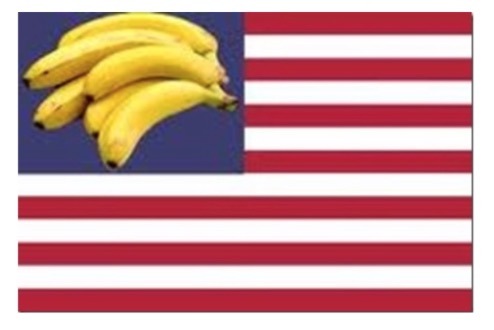Submitted by Nick Bernabe via TheAntiMedia.org,
Everybody remembers learning about one of the central rallying cries of the American Revolution: “No taxation without representation!” Yes, the settlers in early America thought the idea of being forced to pay taxes without having a say in the decision-making of their overlords was very problematic.
In particular, the proverbial straw that broke the camel’s back was a small tax on tea imports on the colonies, who did not have representation in the British parliament; this led to the infamous Boston Tea Party. Seems pretty minuscule compared to today’s 74,608-page tax code, right? Fortunately for modern-day Americans, the founding fathers fixed that problem after they kicked the crown to the curb… except they didn’t.
Oops.
What I’m telling you is that taxation without representation persists today, and that it’s even worse now than when it sparked a revolution.
So let’s start with this meme I stumbled upon while surfing the interwebz yesterday:

I didn’t want to believe it, but it’s true. As the Independent Voter Network explains:
“The practice of subsidizing major parties’ primary elections was cemented into place when the Supreme Court ruled in Bullock v. Carter, also in 1972, that parties requiring candidates to pay excessive fees to appear on a primary ballot imposed an unconstitutional burden on the candidates’ Fourteenth Amendment right to equal protection. This ruling normalized the practice of having the public, not candidates or parties, pay for primary elections.
“This hybrid system leaves independents in states with closed primaries dissatisfied, since they are, in some cases, forced to pay for the elections of private organizations in which they cannot, as independents, participate.”
As I covered in-depth in a recent article, this election cycle has exposed major flaws in the U.S. voting system that have led roughly half of Americans to believe the voting system is rigged against certain candidates.
The two mainstream political parties — Republican and Democrat — are pretty much private clubs. They make their own rules, and some of those rules include “closed primaries,” where independent voters (now the single largest voting block in the U.S.) have the privilege of paying for the elections but not participating in them.
This is where we start getting a little hint of what taxation without representation means. It’s where you pay taxes that are used for something you have no say over — or representation — in. It’s happening right here in 2016 America. But this is just the tip of the taxation without representation iceberg.
Oligarchy
Independent voters paying for the Republicans and Democrats to have arguably rigged elections is child’s play when it comes to understanding America’s oligarchy. The rabbit hole is deep, but I’ll keep it simple for attention span’s sake — and to spare you of many of the boring details.
According to the Oxford Dictionary, an oligarchy is defined as “A small group of people having control of a country, organization, or institution.” And for added (accurate) commentary, Urban Dictionary describes it as “The actual type of government that most countries have. Run by the few.” According to a highly-cited 2014 study of thousands of U.S. policy decisions conducted by Princeton University, America now falls under the oligarchy category.
“[W]e believe that if policymaking is dominated by powerful business organizations and a small number of affluent Americans, then America’s claims to being a democratic society are seriously threatened,” Princeton researchers summarized. “Not only do ordinary citizens not have uniquely substantial power over policy decisions; they have little or no independent influence on policy at all.”
However, there are a handful of citizens who do have their opinions implemented by the U.S. government: the extremely wealthy. As the researchers noted, rich Americans “have a quite substantial, highly significant, independent impact on policy.” Special interest groups also “have a large, positive, highly significant impact…”
To break it down into simple terms: people and organizations that are rich and well-connected call the shots in U.S. politics, and your votes are basically thrown into the abyss once election season is over. This may explain Congress’ record low approval rating.
And, unfortunately, all of this oligarchy stuff is getting exponentially worse as I write this. It’s “legal” for unlimited amounts of money to enter the election system through super PACs — and influence the outcome. The 2016 presidential election alone will wind up costing (political) investors more than $4 billion — and that investment is one of the most profitable around. For those “few” billion dollars spent on political campaigns, trillions are made in returns after the elections are over.
Though because of these realities many Americans refuse to vote, when it comes down to taxation, we all pay into the system. We pay Congress’ salary, we pay the president’s salary, we pay for their lifetime pensions, their healthcare, and their Secret Service protection. Kids pay taxes when they buy candy at the convenience store, people who work under the table for cash still pay sales taxes on everything they buy, anyone who lives with a roof over their head pays some sort of property taxes either directly or indirectly, and the poor pay a higher percentage of their income to taxes than any other income group. Nobody escapes the wrath of Uncle Sam.
There are 537 elected federal politicians who are supposed to be in Washington representing the 320,000,000 person-strong public interest. However, they choose to represent 500 or so billionaires instead of everyday taxpayers. We outnumber these oligarchs 300,000 to 1; maybe it’s time we started acting like it.

via http://ift.tt/1XbbVcC Tyler Durden
